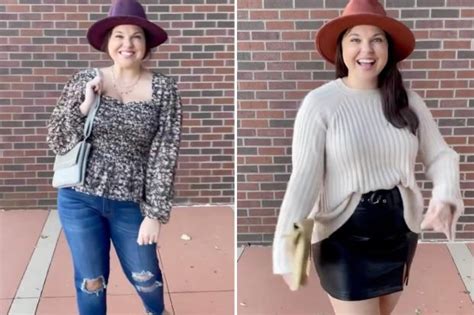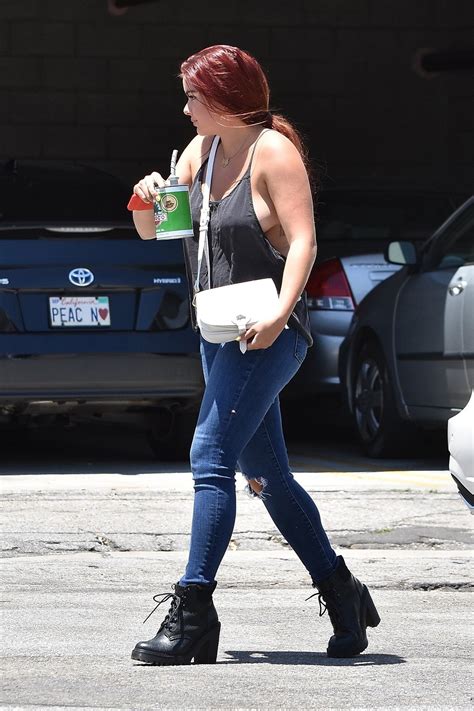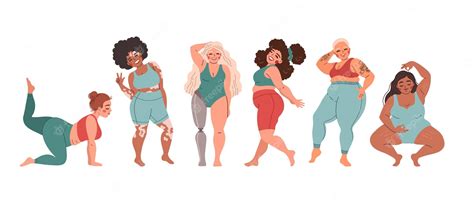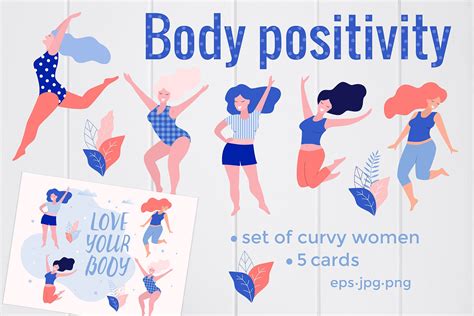
A mother is challenging societal norms and outdated “dress codes” by confidently embracing her curves and redefining personal style, advocating for body positivity and self-expression beyond traditional expectations for moms.
Akilah Hughes, a writer, content creator, and mother, is spearheading a movement encouraging women, particularly mothers, to embrace their bodies and express their individuality through fashion, defying restrictive stereotypes about what moms should wear. Hughes’s journey towards body positivity and self-acceptance has resonated with a broad audience, prompting a wider conversation about societal expectations and the pressure on women to conform to unrealistic beauty standards, particularly after childbirth.
In an interview, Hughes stated, “There is a style that you are supposed to adhere to when you become a mother. I am like, ‘Why?'” This sentiment encapsulates her core message: mothers should not feel obligated to sacrifice their personal style or conform to restrictive norms imposed by society.
Hughes’s approach is not merely about fashion; it’s about self-empowerment and reclaiming personal identity. She actively uses her platform to showcase her style choices, which often challenge conventional notions of “appropriate” attire for mothers. From bold prints and vibrant colors to form-fitting silhouettes, Hughes demonstrates that mothers can be stylish and confident without adhering to limiting stereotypes.
“When you become a mother, you are still you, and you don’t have to change your aesthetic to take care of a human,” Hughes asserts, emphasizing the importance of maintaining one’s identity while embracing motherhood. This perspective is particularly relevant in a culture where mothers often face pressure to prioritize their children’s needs above their own, sometimes at the expense of their personal well-being and self-expression.
Hughes’s advocacy extends beyond personal style choices. She uses her platform to address broader issues related to body image, self-esteem, and societal expectations for women. By sharing her own experiences and insights, she creates a supportive community where women can feel empowered to embrace their bodies and reject unrealistic beauty standards.
The concept of a “dress code” for mothers is rooted in historical and cultural norms that have long dictated how women should present themselves. These norms often reflect outdated ideas about motherhood, suggesting that mothers should be modest, subdued, and focused solely on their maternal role. Such expectations can be particularly restrictive for women who want to express their individuality and maintain their personal style.
Hughes’s defiance of these norms challenges the notion that mothers must conform to a specific aesthetic. She advocates for a more inclusive and accepting society where women are free to express themselves through fashion without fear of judgment or criticism. By showcasing her own style choices and encouraging other women to do the same, she is helping to dismantle harmful stereotypes and create a more equitable environment for mothers.
The response to Hughes’s advocacy has been overwhelmingly positive, with many women expressing gratitude for her message of body positivity and self-acceptance. Her platform has become a space where women can share their own experiences, support one another, and challenge the restrictive norms that have long defined motherhood.
Hughes’s impact goes beyond individual empowerment. She is contributing to a larger cultural shift towards greater acceptance and inclusivity. By challenging outdated stereotypes and promoting body positivity, she is helping to create a more equitable society where women are free to express themselves without fear of judgment or discrimination.
Hughes’s work is particularly relevant in today’s media landscape, where images of seemingly perfect mothers often dominate social media and popular culture. These images can create unrealistic expectations for women, leading to feelings of inadequacy and self-doubt. By presenting a more authentic and relatable portrayal of motherhood, Hughes is helping to counter these harmful stereotypes and promote a more realistic view of what it means to be a mother.
The impact of Akilah Hughes’s advocacy is far-reaching, inspiring women to embrace their bodies, express their individuality, and challenge the restrictive norms that have long defined motherhood. Her message of body positivity and self-acceptance is a powerful reminder that mothers are more than just caregivers; they are individuals with their own unique identities and aspirations.
Hughes’s story underscores the importance of self-expression and the need to challenge societal expectations that limit women’s freedom and autonomy. By embracing her curves and redefining style, she is empowering other women to do the same, creating a more inclusive and accepting society for all.
The conversation surrounding body image and self-esteem is especially critical in the context of motherhood. Women often experience significant changes in their bodies during and after pregnancy, which can lead to feelings of self-consciousness and insecurity. The pressure to “bounce back” after childbirth can be particularly intense, with many mothers feeling compelled to conform to unrealistic beauty standards in order to regain their pre-pregnancy figure.
Hughes’s advocacy challenges this notion, promoting a more compassionate and accepting approach to body image. She encourages women to embrace their bodies as they are, without feeling pressured to conform to unrealistic expectations. By showcasing her own curves and celebrating her body, she is helping to normalize the changes that women experience during and after pregnancy.
The concept of embracing one’s curves is not just about physical appearance; it’s about self-acceptance and self-love. It’s about recognizing that one’s worth is not determined by one’s size or shape, but by one’s character, values, and contributions to the world. Hughes’s message is a reminder that women should be celebrated for their individuality and unique qualities, rather than judged by their physical appearance.
In addition to challenging beauty standards, Hughes’s advocacy also addresses the broader issue of gender inequality. The expectation that mothers should conform to a specific aesthetic is rooted in patriarchal norms that have historically limited women’s freedom and autonomy. By challenging these norms, Hughes is contributing to a larger movement towards gender equality and women’s empowerment.
Her work is a reminder that women should be free to express themselves without fear of judgment or discrimination. They should be able to pursue their goals and aspirations without being held back by societal expectations or stereotypes. By promoting body positivity and self-acceptance, Hughes is helping to create a more equitable society where women can thrive and reach their full potential.
Akilah Hughes’s story is not just about fashion; it’s about empowerment, self-acceptance, and social change. Her advocacy is a powerful reminder that women should be celebrated for their individuality and unique qualities, rather than judged by their physical appearance or societal expectations. By embracing her curves and redefining style, she is inspiring other women to do the same, creating a more inclusive and accepting society for all.
The focus on “dress codes” and appropriate attire for mothers also highlights the ongoing debate about modesty, respectability, and the policing of women’s bodies. Historically, women have been subjected to strict dress codes that dictate how they should present themselves in public. These dress codes often reflect patriarchal norms and expectations, with the aim of controlling women’s behavior and limiting their freedom.
Hughes’s defiance of these dress codes is a challenge to the notion that women’s bodies should be policed or regulated. She argues that women should be free to dress as they please, without fear of judgment or criticism. By embracing her curves and expressing her individuality through fashion, she is reclaiming her body and asserting her right to self-expression.
The issue of “appropriate” attire for mothers is particularly contentious because it touches on deeply held beliefs about motherhood, sexuality, and the role of women in society. Some people believe that mothers should dress modestly and avoid drawing attention to their bodies, arguing that this is necessary to protect their children and maintain a sense of respectability. Others argue that mothers should be free to express themselves as they please, without being subjected to arbitrary dress codes or expectations.
Hughes’s advocacy challenges the assumption that mothers must sacrifice their personal style in order to be good parents. She argues that mothers can be both stylish and responsible, and that there is no contradiction between self-expression and motherhood. By showcasing her own style choices, she is demonstrating that mothers can be confident, attractive, and empowered without compromising their parental responsibilities.
The broader implications of Hughes’s advocacy extend beyond the realm of fashion and personal style. Her work is part of a larger movement towards body positivity and self-acceptance, which seeks to challenge the unrealistic beauty standards that dominate our culture. This movement recognizes that beauty comes in many forms and that individuals should be celebrated for their unique qualities, rather than judged by their physical appearance.
By promoting body positivity and self-acceptance, Hughes is helping to create a more inclusive and accepting society where individuals feel empowered to embrace their bodies and express their individuality. Her work is a reminder that beauty is not a fixed standard but a diverse and multifaceted concept that should be celebrated in all its forms.
Hughes’s journey is a testament to the power of self-acceptance and the importance of challenging societal norms that limit women’s freedom and autonomy. Her advocacy is a beacon of hope for women who have struggled with body image issues or felt pressured to conform to unrealistic beauty standards. By embracing her curves and redefining style, she is inspiring other women to do the same, creating a more equitable and empowering society for all.
The conversation spurred by Hughes also intersects with discussions about cultural appropriation and representation in the fashion industry. The fashion industry has a long history of appropriating styles and trends from marginalized communities without giving proper credit or recognition. This can be particularly harmful when these communities are already facing discrimination and marginalization.
Hughes’s advocacy encourages fashion designers and brands to be more mindful of cultural appropriation and to ensure that they are representing diverse communities in a respectful and authentic way. She also advocates for greater representation of women of color in the fashion industry, both in front of and behind the camera.
By promoting diversity and inclusion, Hughes is helping to create a more equitable and representative fashion industry where all individuals feel valued and respected. Her work is a reminder that fashion should be a tool for self-expression and empowerment, rather than a means of perpetuating harmful stereotypes and inequalities.
The issue of self-expression and personal style is also closely linked to mental health and well-being. Studies have shown that expressing oneself through fashion can boost self-esteem, improve mood, and enhance overall psychological well-being. When individuals feel confident and comfortable in their own skin, they are more likely to experience positive emotions and engage in healthy behaviors.
Hughes’s advocacy emphasizes the importance of self-care and self-compassion. She encourages women to prioritize their own needs and to make choices that support their mental and emotional well-being. By embracing her curves and expressing her individuality through fashion, she is setting an example for other women to follow, demonstrating that self-care is not selfish but essential for overall health and happiness.
The impact of social media on body image and self-esteem is another important aspect of this discussion. Social media platforms are often filled with images of seemingly perfect bodies and lifestyles, which can create unrealistic expectations and lead to feelings of inadequacy. Many women struggle with comparing themselves to others online, which can negatively impact their self-esteem and mental health.
Hughes’s advocacy challenges the curated and often unrealistic portrayals of motherhood that dominate social media. She encourages women to be authentic and real in their online presence, sharing their experiences and struggles without fear of judgment. By presenting a more realistic view of motherhood, she is helping to counter the harmful stereotypes and promote a more positive and supportive online environment.
Hughes uses her own social media platforms to promote body positivity and self-acceptance, sharing images of herself in a variety of outfits that celebrate her curves and express her individuality. She also uses her platform to challenge the unrealistic beauty standards that are often promoted online, encouraging women to embrace their natural beauty and reject the pressure to conform to societal expectations.
Akilah Hughes’s work is a testament to the power of individual action and the importance of challenging societal norms that limit women’s freedom and autonomy. Her advocacy is a beacon of hope for women who have struggled with body image issues or felt pressured to conform to unrealistic beauty standards. By embracing her curves and redefining style, she is inspiring other women to do the same, creating a more equitable and empowering society for all. Her courage to defy traditional dress codes and embrace her authentic self resonates deeply in a culture often quick to prescribe how mothers should look and behave.
The ongoing conversation surrounding body image, self-esteem, and societal expectations for women, especially mothers, continues to evolve, driven by advocates like Akilah Hughes. As more individuals challenge outdated norms and embrace diversity, a more inclusive and accepting society, where women are empowered to express themselves freely and confidently, becomes increasingly attainable.
The long-term effects of Hughes’s advocacy are potentially transformative. By normalizing diverse body types and challenging restrictive dress codes, she is helping to create a more inclusive and equitable future for women and mothers. Her work contributes to a broader cultural shift towards greater self-acceptance, body positivity, and empowerment, paving the way for future generations to embrace their individuality without fear of judgment or discrimination.
Frequently Asked Questions (FAQ)
-
What is Akilah Hughes advocating for in the context of motherhood and style? Akilah Hughes advocates for mothers to embrace their personal style and individuality, defying restrictive societal norms and “dress codes” that dictate how moms should present themselves. She promotes body positivity and self-expression, arguing that mothers should not have to sacrifice their aesthetic to care for their children. As Hughes stated, “When you become a mother, you are still you, and you don’t have to change your aesthetic to take care of a human.”
-
Why does Akilah Hughes believe it’s important to challenge the “dress code” for mothers? Hughes believes it’s important because the traditional “dress code” for mothers is rooted in outdated, patriarchal norms that limit women’s freedom and autonomy. It perpetuates the idea that mothers should be modest, subdued, and primarily focused on their maternal role, hindering their ability to express themselves and maintain their personal identity.
-
How is Akilah Hughes challenging the stereotypes about mothers’ appearances? Hughes actively uses her platform to showcase her own style choices, which often defy conventional notions of “appropriate” attire for mothers. She wears bold prints, vibrant colors, and form-fitting silhouettes, demonstrating that mothers can be stylish and confident without adhering to limiting stereotypes. She also uses her platform to address broader issues related to body image and self-esteem.
-
What has been the response to Akilah Hughes’s message of body positivity and self-acceptance? The response to Hughes’s advocacy has been overwhelmingly positive. Many women have expressed gratitude for her message, finding empowerment and support in her challenge to restrictive norms. Her platform has become a space where women can share their experiences, support one another, and challenge the stereotypes that have long defined motherhood.
-
How does Akilah Hughes’s work contribute to broader discussions about body image and gender equality? Hughes’s work contributes to a larger cultural shift towards greater acceptance and inclusivity. By challenging outdated stereotypes and promoting body positivity, she is helping to create a more equitable society where women are free to express themselves without fear of judgment or discrimination. Her advocacy also addresses the broader issue of gender inequality, challenging the patriarchal norms that have historically limited women’s freedom and autonomy.
-
What kind of societal expectations are being challenged by Akilah Hughes and why are they harmful? Akilah Hughes is challenging the expectation that mothers should adhere to a specific, often modest and subdued, aesthetic. These expectations are harmful because they reinforce the idea that a woman’s identity is secondary to her role as a mother and that her self-expression should be limited. This can lead to feelings of inadequacy, loss of self, and increased pressure to conform to unrealistic standards.
-
How does embracing personal style impact a mother’s mental and emotional well-being, according to Hughes’s message? According to Hughes, embracing personal style can significantly boost a mother’s mental and emotional well-being. It allows her to maintain her sense of self, express her individuality, and feel confident and empowered. This can lead to increased self-esteem, improved mood, and a more positive outlook on life. By prioritizing self-care and self-expression, mothers can better navigate the challenges of motherhood while staying true to themselves.
-
In what ways does social media contribute to the problem of unrealistic expectations for mothers, and how does Hughes address this? Social media often presents idealized and unrealistic portrayals of motherhood, filled with images of seemingly perfect bodies, homes, and lifestyles. This can create intense pressure for mothers to compare themselves to others and strive for unattainable standards. Hughes addresses this by promoting authenticity and transparency in her online presence. She shares her own experiences, challenges, and imperfections, creating a more relatable and supportive environment for other mothers. She also encourages women to embrace their natural beauty and reject the pressure to conform to societal expectations.
-
How does Hughes’s advocacy relate to the concept of cultural appropriation in the fashion industry? Hughes’s advocacy extends to addressing cultural appropriation in the fashion industry by encouraging designers and brands to be more mindful of cultural appropriation. She also advocates for greater representation of women of color, both in front of and behind the camera. By promoting diversity and inclusion, Hughes is helping to create a more equitable and representative fashion industry where all individuals feel valued and respected.
-
What are some concrete examples of how mothers can embrace their curves and redefine style, according to the principles advocated by Hughes? Mothers can embrace their curves by wearing clothing that fits well and flatters their body shape, regardless of size. This might include bodycon dresses, high-waisted pants, or tailored blazers. They can also experiment with bold prints, vibrant colors, and statement accessories to express their individuality. The key is to choose clothing that makes them feel confident, comfortable, and authentic, rather than trying to conform to outdated or restrictive standards. This could mean anything from incorporating vintage pieces, supporting ethical fashion brands, or creating DIY outfits that reflect their unique style.
-
What long-term cultural changes is Akilah Hughes hoping to achieve through her advocacy?
Hughes is hoping to achieve long-term cultural changes that lead to greater self-acceptance, body positivity, and empowerment for women and mothers. She aims to normalize diverse body types and challenge restrictive dress codes, creating a more inclusive and equitable future where women are free to express themselves without fear of judgment or discrimination. Ultimately, she envisions a society where mothers are celebrated for their individuality and unique qualities, rather than judged by their physical appearance or societal expectations.
-
How can individuals support Akilah Hughes’s mission and contribute to the movement of body positivity and self-acceptance? Individuals can support Akilah Hughes’s mission by following and engaging with her content on social media, sharing her message with their own networks, and challenging restrictive norms in their own lives. They can also support brands and organizations that promote body positivity and self-acceptance, and advocate for greater diversity and representation in the media and fashion industry. By speaking out against body shaming and promoting a more inclusive and accepting culture, individuals can contribute to the movement and help create a more equitable society for all.
-
How does the concept of “dress code” relate to the broader issue of policing women’s bodies?
The concept of “dress code” is often used as a tool to police women’s bodies, dictating how they should present themselves in public based on patriarchal norms and expectations. These dress codes can be particularly restrictive for women, often targeting their clothing choices and appearance in ways that limit their freedom and autonomy. By challenging these dress codes, advocates like Akilah Hughes are challenging the notion that women’s bodies should be regulated and controlled, asserting their right to self-expression and bodily autonomy.
- What are some specific ways that businesses and organizations can promote body positivity and inclusivity in their practices?
Businesses and organizations can promote body positivity and inclusivity by featuring diverse models and body types in their advertising and marketing materials, offering a wide range of sizes and styles to accommodate different body shapes, and creating a welcoming and inclusive environment for employees and customers of all sizes. They can also support organizations that promote body positivity and self-acceptance, and implement policies that protect individuals from body shaming and discrimination.
-
How can parents promote healthy body image and self-esteem in their children, especially daughters, in a society that often perpetuates unrealistic beauty standards? Parents can promote healthy body image and self-esteem in their children by modeling body positivity themselves, avoiding negative comments about their own bodies or the bodies of others. They can also teach their children about media literacy and critical thinking, helping them to recognize and challenge unrealistic beauty standards. Encourage kids to be active, pursue their interests, and value their inner qualities over their physical appearance. Creating a supportive and loving environment where children feel valued and accepted for who they are is key.
-
What is the historical context behind the restrictive “dress codes” often imposed on women, particularly mothers? Historically, restrictive “dress codes” for women, including mothers, are rooted in patriarchal norms that aimed to control women’s behavior and sexuality. These codes often reflected societal anxieties about female independence and sexuality, seeking to confine women to specific roles and expectations. These restrictions were also tied to religious and cultural beliefs that emphasized modesty and subservience for women. Over time, these expectations have evolved but continue to influence societal perceptions of appropriate attire for women, particularly mothers.
-
How does Akilah Hughes’s work address the intersection of race, body image, and societal expectations for mothers?
Akilah Hughes’s work directly addresses the intersection of race, body image, and societal expectations by highlighting the unique challenges faced by women of color. Women of color often experience compounded pressures related to body image due to the historical exclusion from mainstream beauty standards and the intersectional discrimination they face based on race and gender. Hughes’s advocacy specifically champions the celebration of diverse body types and challenges Eurocentric beauty standards, creating a space for women of color to embrace their natural features and express their cultural identities through fashion.
- What role do allies play in supporting the movement towards body positivity and challenging restrictive dress codes?
Allies play a crucial role by using their platforms to amplify the voices of marginalized communities, challenging biased practices and behaviors, and advocating for inclusive policies. Allies can support body positivity by promoting diverse representation, challenging body shaming, and educating themselves and others about the harmful effects of unrealistic beauty standards. By actively speaking out and supporting the movement, allies can help create a more equitable and inclusive society for all.
- How does Akilah Hughes balance her advocacy for body positivity with the complexities of health and wellness, avoiding the promotion of potentially unhealthy lifestyles?
Akilah Hughes balances her advocacy by focusing on self-acceptance and empowerment rather than promoting specific body sizes or shapes. Her message emphasizes the importance of feeling comfortable and confident in one’s own skin, regardless of societal expectations. She promotes self-care and healthy habits that support mental and emotional well-being, avoiding the promotion of potentially unhealthy lifestyles by prioritizing overall health and well-being over unrealistic or harmful weight loss goals.
- What advice would Akilah Hughes likely give to a mother struggling with postpartum body image issues and feeling pressured to “bounce back” after childbirth?
Hughes would likely advise the mother to practice self-compassion and prioritize her mental and emotional well-being. She would encourage her to embrace the changes in her body as a symbol of the incredible journey of motherhood and to focus on feeling healthy and strong. Hughes would remind her that there is no timeline for “bouncing back” and that it’s essential to reject the pressure to conform to unrealistic beauty standards. She might suggest finding a supportive community of other mothers, practicing self-care activities, and seeking professional help if needed. Ultimately, Hughes would emphasize the importance of self-love and acceptance, reminding the mother that she is beautiful and worthy just as she is.









